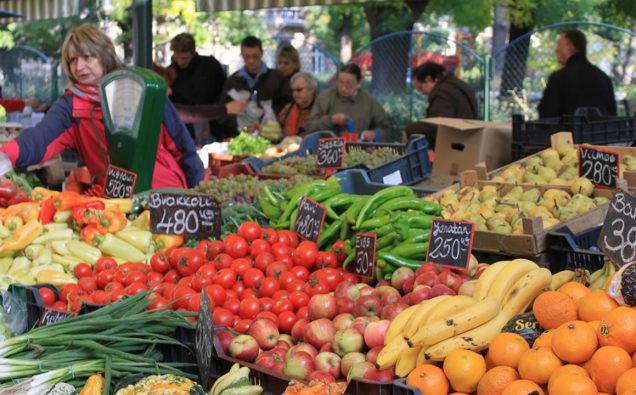
Farmers whose produce feeds the world have scant food left for themselves.
A new report says agricultural workers – who make up one third of world’s workforce – have the hardest time accessing food for themselves, and are often excluded from national labor and social protections.
“Agricultural workers, including women, children and migrants and plantation workers, are increasingly faced with low wages, part-time work, informality, and a lack of social and economic protections,” said Hilal Elver, the UN Special Rapporteur on the right to food while releasing the annual report.
The report comes as farmers in developing countries face discrimination, lack of proper healthcare and exploitation at the hands of landlords. In countries like Pakistan, small farmers are always looking to sell their produce but when it comes to their own health, they have almost no safeguards or money to fall back on.
Agricultural workers, who number over a billion – often work in industrialized food systems which focus on increasing food production and maximizing profitability, at the expense of workers, the report says.
More than 170,000 agricultural workers are killed doing their jobs every year; the risk of a fatal accident is twice as high in food production than in other sector, the Rapporteur reports.
Those working on farms or plantations, face “regular exposure pesticides and to long hours spent in extreme temperatures without adequate access to water,” said Ms. Elver.

©FAO/Riccardo Gangale A woman stands in a cassava field in Mbaiki, Central African Republic. 2012.
Migrant workers are particularly vulnerable as they face “more severe economic exploitation and social exclusion than other agricultural workers” and “lack the fundamental protections otherwise extended to citizens”.
The human rights expert noted that “employers are more likely to consider migrant workers as a disposable, low-wage workforce, silenced without rights to bargain collectively for improved wages and working conditions.”
More worryingly, children are also extremely vulnerable.
Nearly 108 million of them face the same dangers through agricultural work due to insufficient risk-prevention and lack of control measures. More than two thirds of the child labour workforce employed in the broader agricultural sector.
THE SOLUTION
The governments must take action “to ensure that the people who produce our food do not go hungry, and that their fundamental rights are fully respected.”
“Labor rights and human rights are interdependent, indivisible, and mutually inclusive”, she stated, adding that “the full enjoyment of human rights and labour rights for agricultural workers is a necessary precondition for the realization of the right to food.”
Primary, the UN expert says, it is the states’ duty to respect, protect and fulfill the right to food of agricultural workers under international human rights law and to regulate the national and extraterritorial behaviors of the private sector.
“It is time for States to step up, and take swift and urgent action to hold accountable those who commit human rights violations against agricultural workers and to prevent further violations”, the expert says.


















